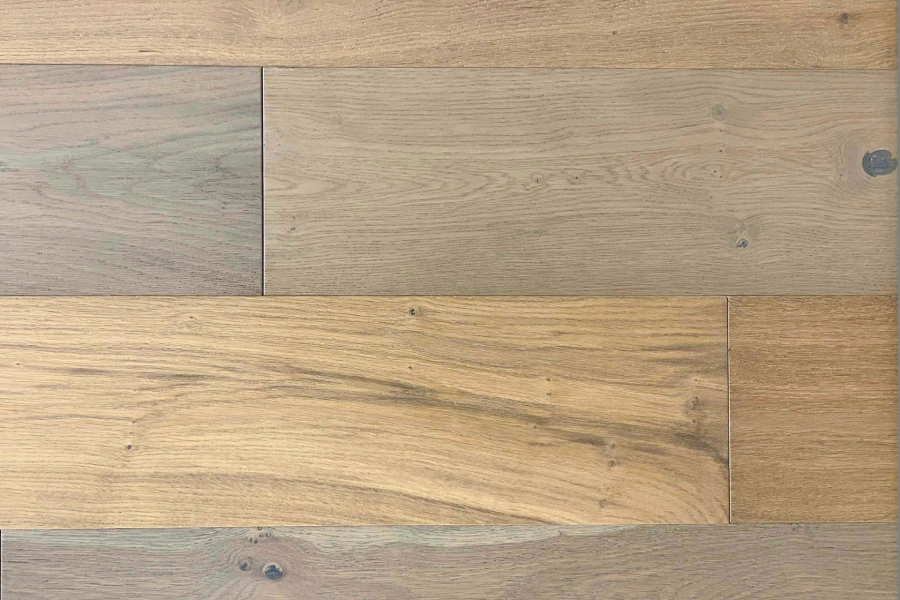
ENGINEERED HARDWOOD BASICS
Compared to solid wood flooring, even at a basic level you can easily see the benefits of engineered hardwood. Because solid varieties have only one layer per plank consisting of homogeneous hardwood, they tend to be more porous, respond less resiliently to water, and are bulkier in width and thickness and thus harder to install.
Engineered hardwood flooring is made of a thin slice of hardwood mounted on a base of top-quality plywood. Thickness of individual flooring pieces tend to range from ⅜ of an inch to ½ an inch; widths are 3 ¼ inches for standard pieces and planks average around 5 inches wide. They’re easy to install, nonporous, durable, and retain their luster longer.
DIFFERENCES IN SANDING METHOD
The differences between solid and engineered hardwood are perhaps best embodied by a comparison of the techniques used to sand them.
Solid wood floors can and do need to be sanded multiple times over the years, becoming increasingly thin and fragile after each session. Over time, the structural integrity of the floors will become so compromised that they’ll need to be completely replaced.
By contrast, engineered hardwood floors can only be sanded once or twice before their coating laminate begins to wear off. It’s best to sand them lightly and gently; they shouldn’t need much more than that to regain their gleam!
HOW IT’S INSTALLED
Traditional solid wood flooring can only be installed with the use of heavy duty staples and is not compatible with the “floating” method. On the other hand, engineered hardwood is both faster to install and affords more choices in the installation method. In addition to stapling, engineered hardwood can be nailed, folded-and-locked, or even glued.
DURABILITY AND HARDNESS
When selecting your ideal flooring for an interior environment, it’s crucial to consider the two separate but similar factors of hardness and durability. Engineered hardwood flooring is more susceptible to chips and delamination when faced with too much wear and tear, but it holds up much better than its solid counterpart in the face of moisture exposure.
In terms of hardness, it’s a close call between the two varieties. Although there is more diversity of choices in solid hardwood, from exotic Brazilian Walnuts to soft Douglas Firs, engineered hardwood floors also offer soft and tough species. Some of their most rigid and tough varieties come from South America or Indonesia.
DECIDING WHAT TO BUY
At this point, you’re probably wondering how to decide between hardwood and solid wood flooring when both varieties have their own unique benefits and drawbacks. In general, you should make your decision based upon the desired lifespan of your hardwood installation.
Engineered flooring has all the aesthetic benefits of wood with more versatility in installation zones, as well as a return on initially invested value.
Solid hardwood is for the purist with loftier budgets and long-term durability in mind, although the price point and more limited installation options make it a tough flooring choice to justify for certain home layouts.
GET ADVICE FROM THE PROS
To get advice on which kind of hardwood flooring is best for your budget, home, and long-term goals, please talk to the installation and restoration professionals at All Flortec Inc. We serve the New Jersey area with unparalleled expertise and service in a wide range of flooring products and upgrades. Call us today to schedule your complimentary estimate!